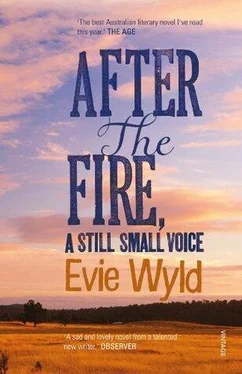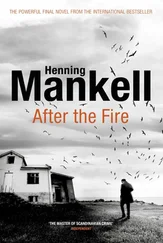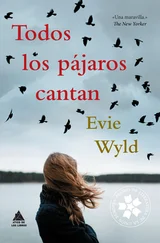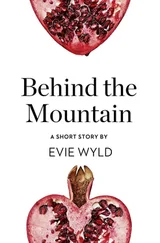The icing was white like light in a copper pan or the sun off the water. It burnt a flash into your eye. It was shaped into a brick and rolled out flat like a pillowcase, then folded back in on itself until it was thin and could be draped over the cake in one piece. Dressing the lady, his father called it, and he thumbed the sheet gently into the creases of the cake, like he was circling a narrow waist. Then he would line up his coloured dyes, each thumb-sized bottle with a handwritten label, every shade of colour separately explained: Buck-eye Brown — the approximate softness of antler moss; Baker’s Rose — a warm cheek; Australian Copper — flesh tone; Holiday Red — a fun-time girl’s lips.
Glancing at the notes he had made about the couple to be married and talking the process through with Leon, his father would add tiny amounts of dye to the unset marzipan.
‘She had a beautiful mouth, that young lady — almost the same colour as her cheeks, but so big, those lips.’ A single drop of red dye would spider out, an ink spot on white linen, and find its way into the creases of white sugar. Pounded with a wooden spoon, the pops and cracks of air bubbles bursting against the side of the stoneware bowl would reach the shopfront where his mother served the everyday cakes. From the blanket of white would come the hue of skin. A dot of blue and yellow produced the lawn for the couple to stand on, the earth that cemented them to their wedding day, the memory of wet grass, the touch of each other’s hands, damp from attention.
Once the marzipan had rested, his father took pinches of each colour and lined them up on the back of a hard-backed cookery book, which he would hand to Leon. He’d talk him through rolling and kneading, teaching him, not too much, but just enough — don’t make the sugar sweat.
Out of Leon’s paws came a crumbling mess, a mix of nose and hat, of shoe and skin that ran together from the heat of his palms, blending grey in the middle. Out of his father’s hands a tiny sculpture, a person in a pleated dress, with a nose like a blade, grasping her wedding handkerchief, thin as a leaf, perfectly able to stand on her own two feet. Undiluted dye picked out the lips and eyes. The black dye was used only on the man — for his hair and shoes, sometimes a moustache if his father was feeling playful. He never used black on the bride. ‘Black is black,’ he would say quietly, his face close to the statue he was working on, his eyes fixed, ‘but brown is a mixture of everything. Brown is better for a woman. When painting a woman you must dip your brush in a rainbow.’ He would look at Leon here, stop his work to ask, ‘You know who said that?’ When Leon shook his head he would go back to work, as if he’d decided not to tell him a great secret. ‘Well, whoever it was, he knew his women.’
When he was younger Leon would poke his tongue out of the side of his mouth and frown as his hand shook with the effort of stillness, and his paint-brush gave his monster bride a red slash on the head, a beard instead of eyebrows or a target on her chest instead of a flower.
His father would sit the pair next to each other, and examine their work side by side. ‘Your bride has a well-rounded bosom,’ he would say, ignoring the fact that she had only one. Looking at his own work, his father would stand with his hand on his chin, sucking his tongue and say, ‘You know — I think I really need to do more work on noses.’
Leon would squint at the perfect tiny woman who stood on the bench top, and his palms would itch to be as large and gentle as his father’s. On his fourteenth birthday he could roll out a perfectly formed woman, but his hands still shook when he tried to paint her. The couple his father had made for his own wedding sat high up on a shelf in a bell jar but Leon knew them by heart. His mother held, for some reason, a stuffed bear against which you could see the tiny pinking of her fingernails. Her lips were bowed and smiling, and she had bitter-chocolate hair that reached to her pencil waist. The toe of one shoe pointed out underneath her skirts and it was blue like a duck egg. His father wore a sugar tuxedo broadly stretched over his chest. On his lapel was a poppy and you could make out the black seeds in its centre. He wore a moustache that he didn’t wear now, two lines neatly executed in black.
At school a fat-necked boy called Darren Farrow announced that world war three was happening and pretty soon it would be the end of everything. He said it with his head tilted back on his neck, he said it looking down his nose, pointing out his chin. ‘My brother’s off fighting ’em an’ pretty soon I’m gonna run off and join him. He says we’ll show those Japs what the carry-on’s about.’
‘I thought Japs lived in Japan?’ said Amy Blackwell, whose father owned the fruit shop, and everyone looked at her.
Darren Farrow fixed her with an ancient and wise look. ‘Those Japs get everybloodywhere . All over the place.’ And she was silenced.
‘It’s like your sort,’ Darren explained, pointing at Leon. ‘All your sort with your dark hair and funny ideas about washing.’ Leon said he didn’t know what ideas Darren thought he had about washing, but he was happy enough to stuff his fat neck with the cream buns he’d made with his two very own stinking hands.
Leon went home after clearing up the blood in his nose, but his mother still noticed and still caused a fuss. ‘With all this going on, and even the babies are at it, trying to kill each other!’ she cried, dabbing at the smear of new blood on his cheek with a Dettol-soaked napkin.
He did not like being called a baby and rubbed his nose till it bled again. His mother came downstairs with her coat and hat on, and marched him out of the door. They nearly crashed into Mrs Shannon from over the road, whose face was always swollen and dark from something that happened in her home, but she still smiled at Leon: it looked like she winked behind her dark glasses. After half an hour on the bus they arrived at the Farrows’ house in Glebe. The Farrows lived in a sandstone building next to a church and it made him hot inside when he thought about their own small rooms above the cake shop, the crumbly walls dark and the smell of toast in the curtains and the blankets. The Farrows’ house had a cream ivory push-button bell, but his mother didn’t like to use it, so instead she knocked hard on the door. No one answered so she knocked harder, until Leon was squeezing her hand in embarrassment. A woman appeared, a look on her face like she couldn’t believe there was someone at her front door. He bit both his lips at the same time and tried not to blink. He saw the end of his nose, red with where he’d been thumped and he could see the tops of his cheeks as well, and they were also red.
‘Mrs Farrow.’
The woman looked Leon’s mother up and down, a blink of recognition showing, she let her face set into a small hard smile. ‘Mrs Collard.’
‘I’d like to talk to you about your son. He’s hit my boy on the nose and gave him blood.’
Mrs Farrow’s eyes came to rest on Leon, and he looked away, like he was thinking about something else. Her English always got worse when she was nervous or angry. He would have liked to have run off then, left his mother to deal with it herself. ‘I think you’re trying to tell me your boy had a nosebleed, Mrs Collard.’
‘Yes, well, fine, but it was your boy, and we’d like him to sorry.’
‘To a-polo-gise,’ Mrs Farrow corrected.
His mother clutched his hand and he tried to slip it out from her grasp. The shame, he could taste it.
Mrs Farrow gave them a prim smile and called out behind her, ‘Darren! Come down here, please. I need you to assist Mrs Collard with her enquiry.’
Читать дальше












